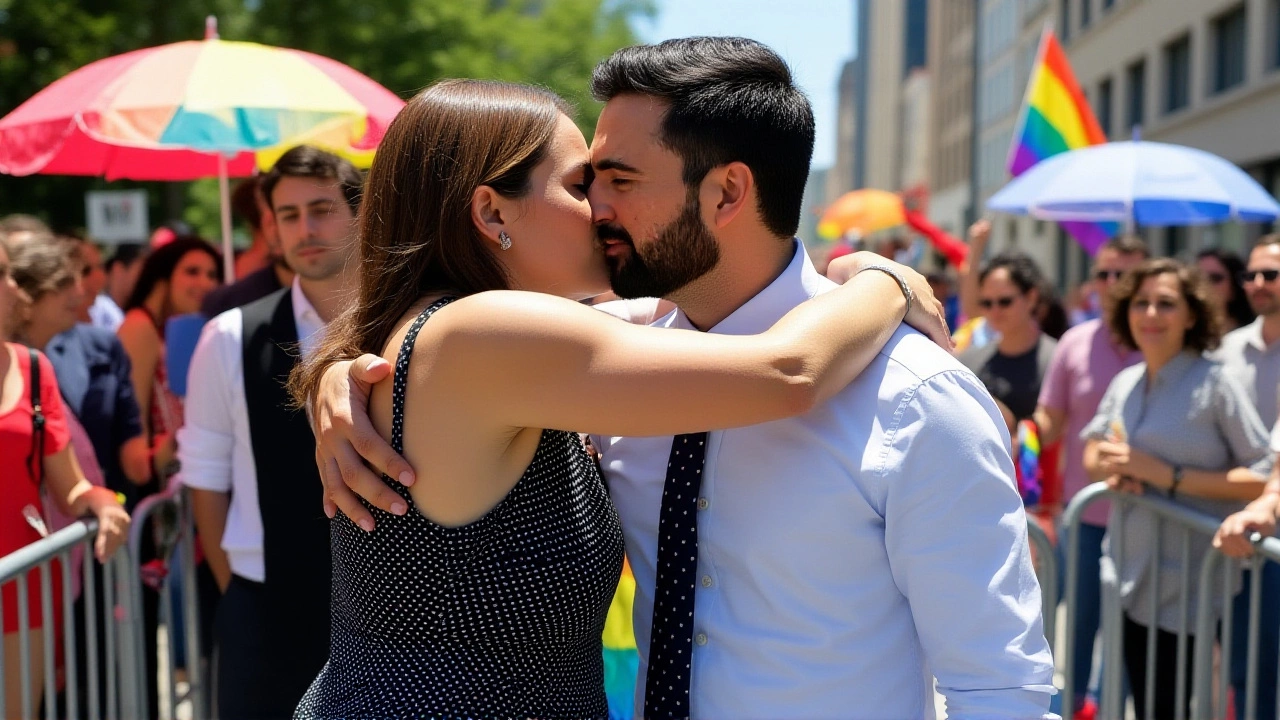When Bobby Walker, a resident of Schenectady County, was named in a torrent of leaked messages, the fallout rippled through New York’s political scene overnight. The leak, uncovered by an exclusive Politico investigation released on August 24, 2023, contained nearly 3,000 pages of racist, anti‑Semitic and violent banter exchanged among members of the New York State Young Republicans. Within hours, Governor Kathy Hochul and Vice President Kamala Harris issued statements condemning the behavior, signalling that the scandal was about to become a statewide flashpoint.
Background: A Youth Wing Under Scrutiny
The New York State Young Republicans serve as the state arm of the national Young Republicans of America. Based in Albany, the group traditionally rallies college students and recent graduates around GOP policy goals. In late 2022, the organization elected Nick Langworthy, then‑chair of the state Republican Party, as its honorary chair, hoping to boost legitimacy among younger voters.
That credibility evaporated when Politico investigation into Young Republican chatsAlbany made public a cache of group‑chat logs dating from January 1, 2023 through mid‑August 2023. The messages, shared on a private messaging platform, featured jokes about gas chambers, slavery, and rape – language that Politico described as “a culture where racist, anti‑Semitic and violent rhetoric circulates freely.”
What the Leak Revealed
Among the most disturbing excerpts were remarks that trivialized the Holocaust and mocked historical trauma. One participant wrote, “Imagine if the gas chambers were a new trend—just kidding,” while another compared modern political tactics to “slavery re‑branded.” The archive also included threats of physical violence, with one user suggesting “a little push” for opponents who “won’t shut up.”
- Approx. 3,000 pages of messages spanning seven months.
- At least three distinct chat groups, each with 10‑15 active members.
- Participants linked to local Republican committees, campaign staff, and college chapters.
- Explicit references to extremist memes circulating on broader internet forums.
While the investigation did not name every participant, it identified Walker as one of the figures who had shared the most provocative content. The report noted that he resides in Schenectady County, placing him squarely within the Capital District’s political ecosystem.
Political Reactions: From Albany to Washington
Governor Hochul, a Democrat, responded within minutes of the Politico story breaking, stating, “Hate has no place in our state or our party. Those responsible must be held accountable.” Vice President Harris, speaking from the White House, added, “Extremist rhetoric undermines the very foundations of our democracy, and we will not tolerate it.” Both leaders called for an immediate internal review of the Young Republicans' leadership and membership vetting processes.
The state GOP, meanwhile, issued a more guarded response. Party chair Nick Langworthy said the organization was “deeply disappointed” and pledged to cooperate with any investigation, but he stopped short of naming individual members. A spokesperson for the national Young Republicans of America echoed similar sentiments, emphasizing a “zero‑tolerance policy for hate speech.”
Broader Implications: Youth Politics and Extremism
The scandal fuels a broader conversation about how extremist ideas infiltrate political youth groups. Experts note that the anonymity of private messaging platforms makes it easier for hateful jokes to slip past moderation. Dr. Elena Ramirez, a political science professor at SUNY Albany, warned, “When young activists normalize hateful language, they set a dangerous precedent for future leadership.”
Historically, similar controversies have erupted in college campuses, but this is one of the first times a state‑level GOP youth wing has faced such a deluge of documented hate speech. The timing is also noteworthy: the leak came just weeks before the 2024 presidential primaries, a period when both parties are courting younger voters.

What’s Next: Investigations and Possible Reforms
State authorities have opened a preliminary inquiry into whether any of the messages violate New York’s hate‑crime statutes. Meanwhile, the New York State Board of Elections is reviewing whether the Young Republicans' fundraising activities need tighter oversight.
Local media outlets, including CBS6 Albany, have promised continued coverage, with anchors noting they will “stay with us as more developments unfold this afternoon or tomorrow morning.” The expectation is that the story will dominate political talk shows and potentially influence candidate platforms on campus‑related policies.
Historical Context: Past Scandals in Youth Political Organizations
The Young Republicans are not the first youth political group to wrestle with extremist rhetoric. In 2017, the College Republican National Committee faced criticism after leaked emails revealed support for conspiracy theories. More recently, a 2022 exposé uncovered racist memes circulating within a state Democratic youth wing in Virginia, prompting statewide condemnations and a series of resignations.
These incidents illustrate a pattern: as political parties vie for younger demographics, the venues for recruitment—often informal, digital, and loosely regulated—become fertile ground for fringe ideas to spread. The current scandal may prompt a reevaluation of how parties monitor and train their youthful cadres.
Frequently Asked Questions
How does the scandal affect members of the New York State Young Republicans?
Members may face internal investigations, possible expulsion, and heightened scrutiny from both the state party and law‑enforcement agencies. The controversy could also damage their future political prospects, as affiliation with the group is now linked to extremist rhetoric.
What legal repercussions could arise from the leaked messages?
If any statements meet the threshold for hate‑crime or incitement under New York law, prosecutors could file charges. At a minimum, the Board of Elections may impose sanctions on the organization’s fundraising or campaign activities.
What steps are state leaders taking in response?
Governor Hochul has called for a full review of the Young Republicans’ leadership and a reinforcement of anti‑hate policies across all party branches. Vice President Harris has urged the federal government to monitor extremist rhetoric within political organizations and consider legislative safeguards.
Will this scandal influence the upcoming 2024 elections?
Yes. Candidates will likely be pressed to distance themselves from the scandal, and voters—especially younger ones—may reassess their support for GOP youth groups. The issue could become a talking point in debates and campaign ads.
How does this incident compare to previous political chat scandals?
Unlike earlier college‑campus leaks, this case involves an official state‑level party affiliate, giving it broader political weight. The scale—close to 3,000 pages—also dwarfs many prior disclosures, making it one of the most extensive records of internal hate speech in a U.S. political organization.




